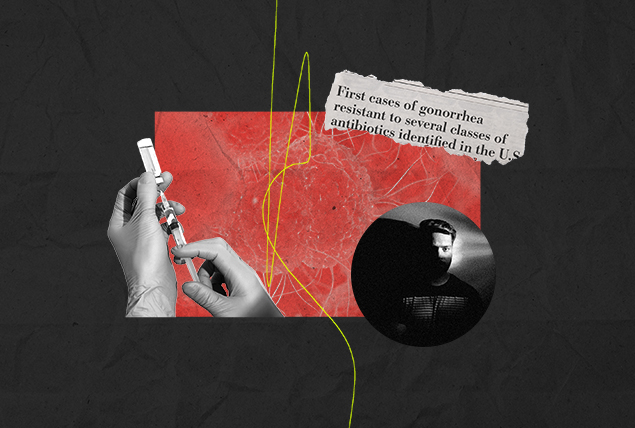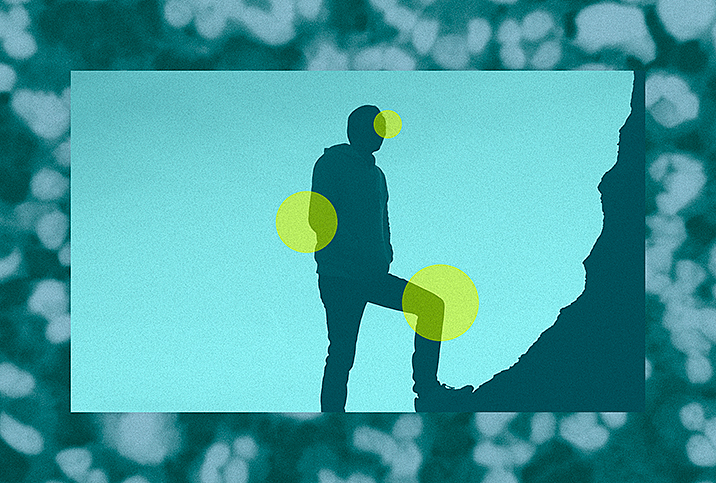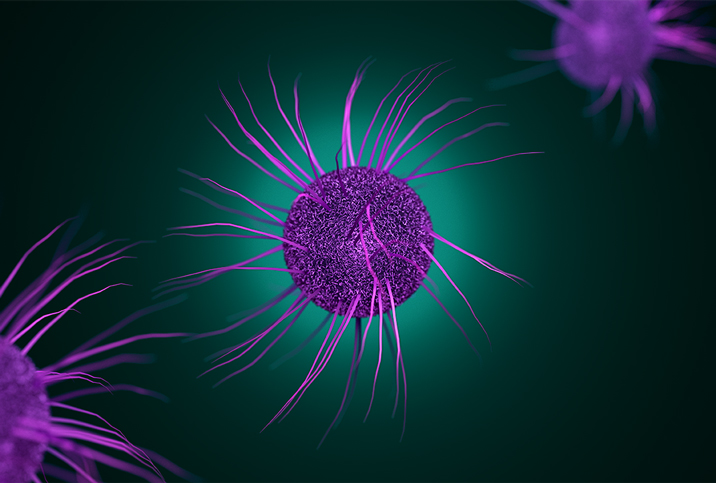What Happens After You've Been Diagnosed With Gonorrhea?

Gonorrhea is a sexually transmitted disease (STD) that's usually easy to treat. The current recommendation is a single injection of the antibiotic ceftriaxone in the gluteal muscle (your butt).
But sometimes it isn't quite so easy, as certain circumstances require different treatment.
For example, if you're allergic to penicillin, instead of the injection, you will be prescribed an oral antibiotic to take for several days. Or if you have chlamydia, a common co-infection with gonorrhea, you'll get the injection along with a course of oral antibiotics.
Your medical care provider will determine the best course of treatment for you. But once you have treatment secured, there's more you need to do to protect your health as well as the health of your sexual partners.
Who you gonna call?
Your healthcare provider is required to report a positive case of gonorrhea to local and state public health authorities. This helps track the spread of the disease and develop targeted prevention programs among vulnerable groups.
You may be contacted by your local health department following your diagnosis. Their job is to answer any questions and assist with notifying your prior sex partners. Partner Notification Services is an effective system for letting people know if they have potentially been exposed to something infectious while allowing the patients to remain anonymous.
Not all locations have health departments with sufficient staff to follow up on gonorrheal infections, so you may have to notify past sex partners yourself.
"For men who have symptoms of gonorrhea, all sexual contacts in the previous two weeks, or the last sexual partner—if the last sexual contact was longer than two weeks—should be notified," said Deborah Lee, M.B. Ch.B., a reproductive health specialist at Dr Fox, an online doctor and pharmacy service in the United Kingdom. "For anyone else, including those who are asymptomatic or have nongenital gonorrhea—for example, in the pharynx [throat]—any partners in the previous three months should be notified."
When is it safe to have sex again?
You should refrain from all sexual activity—even oral sex or sex with a condom, according to Lee—until seven days after your antibiotic injection or the last day of antibiotic pills, depending on what treatment you receive. Additionally, all symptoms need to be absent.
If your partner is being treated also, you need to wait seven days after their treatment has ended. If you are intimate before the bacteria are completely gone, it's possible to continue to reinfect each other.
Should I retest to be sure it's gone?
It is generally recommended to be tested again after completing treatment for gonorrhea to ensure the infection has been fully cleared from your body. This is especially important if you are not in a monogamous relationship.
"Anyone who has been treated for gonorrhea should return to the clinic for testing to be repeated. This is called a test of cure," Lee said. "This is especially important if the patient still has symptoms, if they had pharyngeal [throat] gonorrhea or if they took a second-line choice of antibiotics."
The Centers for Disease Control and Prevention (CDC) recommends retesting after three months, whereas the British Association of Sexual Health and HIV (BASHH) advises retesting after two weeks.
How do I take care of myself after I am cured?
It is important to avoid reinfection with gonorrhea. This is especially true for women because the bacteria that causes gonorrhea spreads more quickly through the reproductive tract on subsequent infections. Each new infection greatly increases the risk of pelvic inflammatory disease (PID) and ectopic pregnancies.
A gonorrhea diagnosis is associated with people later contracting HIV, especially among men who have sex with men (MSM). The relationship is strong enough that healthcare providers recommend MSM who get gonorrhea take PrEP (pre-exposure prophylaxis) as a precaution.
What happens if I get drug-resistant gonorrhea?
A novel strain of gonorrhea that was already reported in the United Kingdom and other countries is spreading in America as of January 2023. Dubbed "super gonorrhea," it displayed some level of resistance—from generally less susceptible to complete resistance—to most antibiotics used to treat gonorrhea.
While this is bad news, the strain is responsive to the top-choice antibiotic, but it still has some resistance to the drug.
Eventually, it is assumed a strain completely resistant to all forms of treatment options will develop, which would be enormously significant. People worldwide will suffer lifelong complications from gonorrheal infection, which will mean women might have incurable pain and pelvic infections, families may experience infertility, babies may become blind and people could die.
Is there a vaccine for gonorrhea?
The short answer is no, there is no vaccine licensed to prevent gonorrhea. However, scientists have been working on one for a while.
"To date, trials of gonococcal vaccines have had disappointing results," Lee noted. "However, scientists believe that the meningococcal B vaccination may show cross-protection for gonorrhea."
The reason this cross-protection can happen is that Neisseria gonorrhoeae, the bacteria that causes gonorrhea, is closely related to Neisseria meningitidis, which causes meningococcal disease.
A large retrospective study indicated that the meningococcal B vaccine offers some protection against gonorrhea. One dose of the vaccine provided 26 percent effectiveness against gonorrhea, and completing the vaccination series provided 40 percent protection.
A 2020 assessment suggested that even a partially protective vaccine, such as the current meningococcal B vaccine, could dramatically decrease the incidence of gonorrhea, even as it becomes more drug-resistant.
Additional useful resources
Learning about gonorrhea is a good first step toward prevention and treatment options. Three online resources represent a good place to start on that journey:
- Planned Parenthood is a nonprofit organization that provides reproductive health services, including testing and treatment for STDs and sexually transmitted infections (STIs). They have a free online chat/text service in English and Spanish to discuss sexual health questions, including helping you figure out if and when you should be tested for STIs.
- The CDC is a federal agency that provides information and guidance on a wide range of health topics, including STDs and STIs.
- American Sexual Health Association (ASHA) is a nonprofit organization that promotes sexual health and provides information and resources on STDs and STIs, as well as a directory of testing and treatment centers.


















